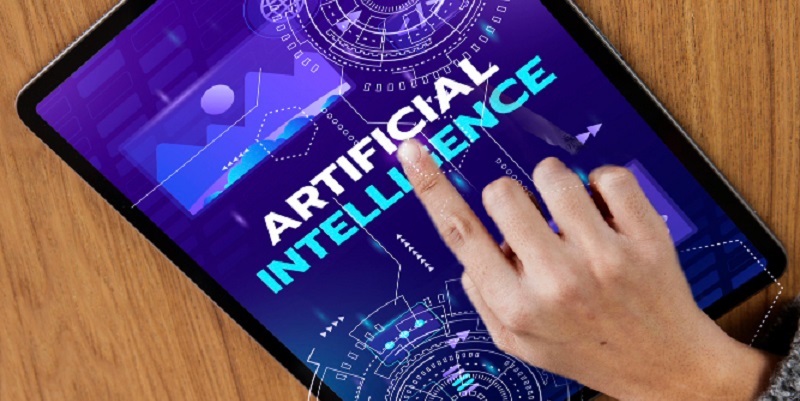In today’s highly competitive business landscape, understanding and catering to customer needs is crucial. This is where the power of AI in CRM comes into play. By leveraging advanced technologies, AI analyzes data, recognizes patterns, and gives businesses profound insight into customer behaviors, preferences, and even moods. With this invaluable knowledge at hand, businesses can create personalized experiences and build long-lasting relationships with their customers. Let’s delve deeper into how AI revolutionizes CRM and its numerous benefits.
AI’s impact on customer insights
One of the most significant advantages of AI in CRM is its ability to analyze massive volumes of data quickly and accurately. By combining data from various sources, AI algorithms can uncover hidden patterns and trends that humans might miss. This allows businesses to understand customer behaviors, preferences, and moods at a granular level. With this knowledge, businesses can tailor their offerings, marketing strategies, and customer interactions to meet individual needs and expectations.
Automating mundane tasks
In traditional CRM, manual data entry, scheduling, and follow-up emails can consume valuable time and resources. Enter AI. With its incredible capabilities, AI can handle a multitude of tasks seamlessly. From data entry to scheduling to sending out follow-up emails, AI streamlines these mundane tasks, freeing up time for the sales and customer support teams to focus on building meaningful relationships with customers. This not only improves efficiency but also enhances the overall customer experience.
Focusing on building relationships
By automating mundane tasks, businesses can allocate more time and resources to nurturing customer relationships. Building meaningful connections with customers fosters loyalty and long-term advocacy. AI-powered CRM enables businesses to identify key touchpoints in the customer journey and personalize interactions accordingly. From personalized emails to tailored product recommendations, businesses can deliver hyper-personalized marketing campaigns that feel like they’ve been handcrafted for each customer.
Hyper-personalized marketing campaigns
Gone are the days of one-size-fits-all marketing campaigns. With AI-powered CRM, businesses can create highly personalized and targeted marketing campaigns based on individual customer preferences, behaviors, and purchase histories. By leveraging AI algorithms, businesses can analyze vast amounts of data and identify patterns that enable them to understand customer needs and preferences better. This allows for the creation of tailored marketing content and offers that resonate with customers on a deeper level. As a result, customer engagement and conversions increase significantly.
24/7 customer support with virtual assistants and chatbots
In today’s digital era, customers expect instant responses and round-the-clock support. This is where virtual assistants and chatbots, powered by advanced machine learning algorithms, shine. These AI-driven tools can handle customer queries efficiently and accurately, providing immediate assistance anytime, anywhere. Virtual assistants and chatbots have the ability to understand and respond to natural language, making the customer service experience seamless and personalized. With AI in the picture, businesses can ensure that their customers receive prompt and helpful support, even outside of regular business hours.
Staying Ahead with Predictive Analysis
In an ever-evolving market, staying ahead of the competition is paramount. This is where predictive analysis powered by AI comes into play. AI algorithms can analyze past customer behaviors, market trends, and other relevant data to predict future outcomes. By using this data-driven insight, businesses can anticipate customer needs, make informed decisions, and develop proactive strategies. Predictive analysis helps businesses stay one step ahead, adapt to market changes, and remain relevant.
Fostering a culture of continuous learning
To harness the full power of AI in CRM, it is essential for businesses to foster a culture of continuous learning and adaptability. This involves providing training and workshops for employees to understand the capabilities of AI and CRM integration. Collaborating with tech-savvy firms and staying updated with credible sources on AI and CRM developments is also crucial. By embracing a learning mindset, businesses can unlock the true potential of AI in CRM and gain a competitive edge in the market.
The Transformative Power of AI in CRM
The union of AI and CRM is exciting, transformative, and essential for businesses aiming for that extra edge. Gone are the days of generic interactions and one-size-fits-all approaches. With AI, businesses can deliver personalized experiences, meet individual customer needs, and build long-lasting relationships. The ability to automate mundane tasks, analyze vast amounts of data, and deliver hyper-personalized marketing campaigns sets businesses apart in the competitive marketplace. By embracing AI in CRM, businesses can unlock a future where interactions with customers feel more personalized than ever before.
Embracing AI in CRM for personalized interactions
Now is the perfect time to embrace AI in CRM for a future where interactions with businesses feel more personalized than ever. By leveraging AI’s capabilities to analyze data, automate tasks, and enable hyper-personalized marketing campaigns, businesses can disrupt traditional CRM practices and create exceptional customer experiences. Embracing AI requires workshops, partnering with tech-savvy firms, and staying updated with credible sources on AI and CRM. The benefits are substantial – improved efficiency, enhanced customer loyalty, and a significant competitive advantage.
AI’s transformative power in CRM cannot be overstated. It empowers businesses to understand customer insights, automate mundane tasks, deliver hyper-personalized marketing campaigns, provide round-the-clock support, stay ahead with predictive analysis, and foster a culture of continuous learning. In today’s customer-centric world, integrating AI into CRM is no longer a luxury but a necessity. Businesses that embrace AI and CRM integration will be well-positioned for success in an increasingly competitive marketplace. The time to harness the power of AI in CRM is now.

